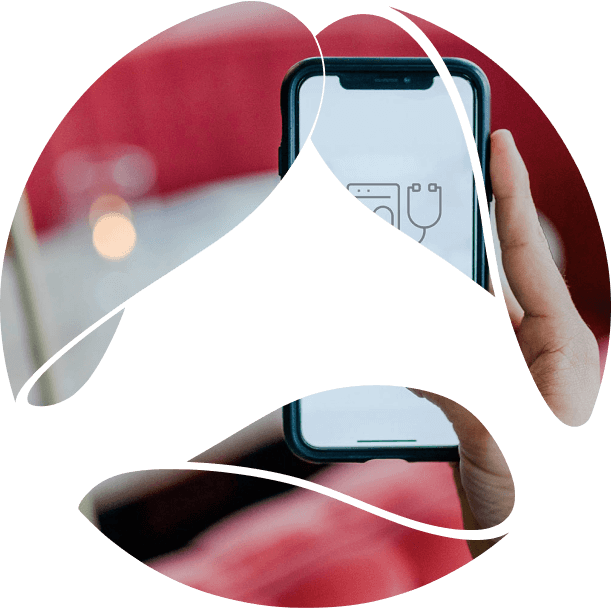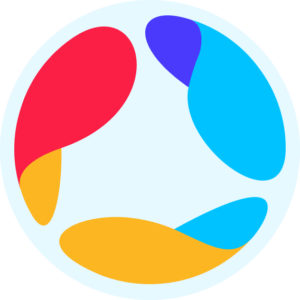As a response to the global digitalization of almost every aspect of our lives, there has been an explosion of healthcare mobile apps in the past few years. According to IQVIA institute for Human Data Science, medical or health-related mobile applications account for over 318,000 apps worldwide, and more continue to appear every day.
Although the healthcare field deals with both complex and sensitive data, the industry has clearly learned to navigate those difficulties and to leverage the power of mobile communications, making it possible to provide a more versatile and personalized approach to health care that benefits doctors and patients alike.
Here are some reasons why the healthcare industry has chosen to stay at the forefront of the mobile revolution.
Benefits of medical apps
- Faster and easier doctor-patient communication and information exchange: scheduled appointments, initial problem awareness, medical metrics availability.
- Guided treatment plans and better clinical decision-making based on real-time information.
- Deeper insight into health issues based on exhaustive data and more accurate information processing.
- Cost saving for both patients and the state, including the facilitation of better, on-time bill payment.
Is there any reason to wonder by patient demand for medical mobile apps has skyrocketed?
→ Explore enterprise mobile app development services by Avenga and inspire users to download, engage and share your mobile application.
Types of healthcare apps
Although all mHealth apps concentrate on serving both providers and patients, the variety of applications in the marketplace is surprising:
Clinical and diagnostic apps
Specialized medical and reference apps offer personal health records (PHR) along with digital images (MRI, x-ray), e-chart review, lab results, symptoms check, and medical conditions data.
Health awareness and fitness apps
Fertility and baby development apps provide information on diet and exercise monitoring. Weight control apps manage nutrition and fitness, and weight tracking.
→ Discover how mobile applications enable preventive care, integration of patients to increase therapy adherence and optimize processes.
Chronic care and medical management apps
mHealth apps can help manage cancer, diabetes, mental issues, and blood pressure, while also facilitating prescriptions, appointments, alert creation, and provide medical references for patients and physicians.
Avenga has developed a number of mHealth apps for medical purposes. Being HIPAA compliant, mHealth apps by Avenga were created both for Android and iOS, utilizing the best practices of UX design, performance stability and data security.
What does it take to develop and implement a healthcare app? Start with a sustainable concept and the essential programming capabilities. Know your target audience and focus on the implementation of the most valuable features for an exceptional user experience.
Necessary functionalities for mobile health apps
A worthy mobile healthcare app is all about providing functionality and usability to customers, both providers and patients. The most desired features of a health app include:
- tracking/monitoring/reminders.
- scheduling/appointments
- payments/prescriptions.
- push notifications.
- 3d party integrations/social integration.
- imaging.
- pop ups with maps.
- doctor profiles.
- scans.
- analytics based on EMR/EHR and data.
As developers often note, there are always ways to improve mobile applications. With the range of necessary built-in features, a medical mobile app must be capable of performing its key mission — to analyze health information for meaningful results. Great customer-oriented health mobile apps predominantly target end-user needs.
1. Identify and analyze the issue you want to solve with your solution
Any solution provided by a mobile health application should be based on a clear understanding of the use case, which should define where the app will be used and what value will it bring.
In the competition-intensive marketplace, an mHealth app should not just be useful, but present an added value as a tool to help solve a definitive critical problem and improve care.
For instance, tracking is evidently one of the most valuable functionalities to mobile healthcare users. However, the app provides added value when it combines scheduling and mobile integration with payment systems and insurance databases.
2. Know your consumer
The 21st Century user is comfortable with digital interaction. A successful mHealth app pays attention to customers’ key mobility needs and expectations. Robust functionality is bound to present value for your customer. Providers must be aware of what their particular audience wants to see in a product and offer both providers and patients the functionality they expect from a health mobile app. For instance, a doctor wants access to an application capable of various 3d party integrations and EMR/EHR analytics alongside basic consumer functionalities. At the same time, a patient wants to monitor calories, heart rates, or glucose level.
Usability and design preferences vary greatly according to demographics. Apps designed for people in their 20es will most likely not enjoy the same popularity among senior citizens. It concerns visuality, integration preferences as well as accessibility of information.
Gamification can make your app more attractive and contribute to the final goal of developing healthy habits. Some medical organizations already incorporate quizzes and contests as well as social media to keep app users interested.
3. UI/UX matter especially
Your mobile health app must accumulate all the best aspects of good user experience to correlate with crucial functionality. Patients, as well as medical professionals, demand comfortable menu navigation and catchy interfaces. Their satisfaction with the native user experience of the hospital mobile or wellness app will definitely define if they want to use it or not.
Our experts in mobile app development claim that it is important to build a dynamic interface to ensure that all upgrades are added at the back end in order to make user experience better and the developer’s work more productive. It makes sense from both a cost and efficiency standpoint to design an mHealth app with components that allow developers to work on every component separately within the framework in case of an upgrade or fix. This allows for uninterrupted workflow, and automatically implies price reduction for both the development and deployment processes. Cost efficiencies built in to that type of development plan make the app more attractive to the customer.
Where easy access to patient data is a key functionality, a single point of entry can make the user much more comfortable with the same interface for EHR or a hospital portal/scheduling platform, and more likely to adopt the app.
→ Learn about UMA, an AI-powered assistant for advanced workplace productivity.
4. Test everything without compromise
Quality assurance is more than just testing. You should map out every test case and every situation in which the application can be used, and then test them without compromise. As experts duly point out, A/B testing for every single feature of your medical app is a must for success.
Backend data analytics can also give an impression of how an app is used. Is it popular or confusing for end users? Since you can not afford to loose any customer, app ratings and feedback provide a perfect opportunity to improve customer experience and an essential task for the development of the next app iteration.
→ Learn about data validation testing techniques and approaches to help you ensure the data you deal with is correct and complete.
5. Engage security experts
Privacy and data security are the hottest considerations in healthcare. Conforming to both privacy policies and government regulations, e.g., HIPPA, etc., is a priority for every health and wellness mobile app.
Secure medical mobile app development starts with well-aligned architecture that meets all security standards. Your mobile software team should be thoroughly familiar with all applicable regulations to ensure that there is no possibility of data leakage or unauthorized access. Failure to do so can produce swift and harsh financial liability.
With both stored and transmitted medical data protection a paramount priority in any mHealth app, encryption is critical in securing IT systems, mobile communications, and considered to be one of the most efficient data security methods used in software development. It works by using encryption algorithms to translate data to a form, such as a secret code, that only specific people can read or access.
Dealing with consumers’ sensitive information and managing protected health information (PHI) is an mHealth app customer’s highest priority. They need to be assured of security, privacy, and adherence to all governmental regulations, even before downloading the app. Due to these complex security requirements, it is worth running your mHealth app by experts to ensure that the app is not just functional and easy to use, but also secure.
6. Mobile platform choice
The global mHealth applications market has a predicted value of USD 102.43 billion by the year 2022. Although, statistically, the USA is the largest marketplace for mobile apps in healthcare, European and the Asian-Pacific region markets are forecast to grow substantially in the next five years. Therefore, it is advisable to involve multi-platform app development for future products, since the majority (over 70%) of current health mobile app providers tend to publish their products on iOS and Android platforms.
Mobile devices tend to simplify daily life. By developing a medical mobile app to help monitor health conditions or care organization routines, users become comfortable with access to the all levels of healthcare services. It has been proven to be a convenient way to schedule a doctor’s appointment or share health-related information, from which both sides greatly benefit while also saving clinics time and effort for their administrative services.
An effective health mobile application is developed with the goal of being easily adapted and helpful to its users. The successful medical mobile app targets its customers’ best interests as a top priority.









